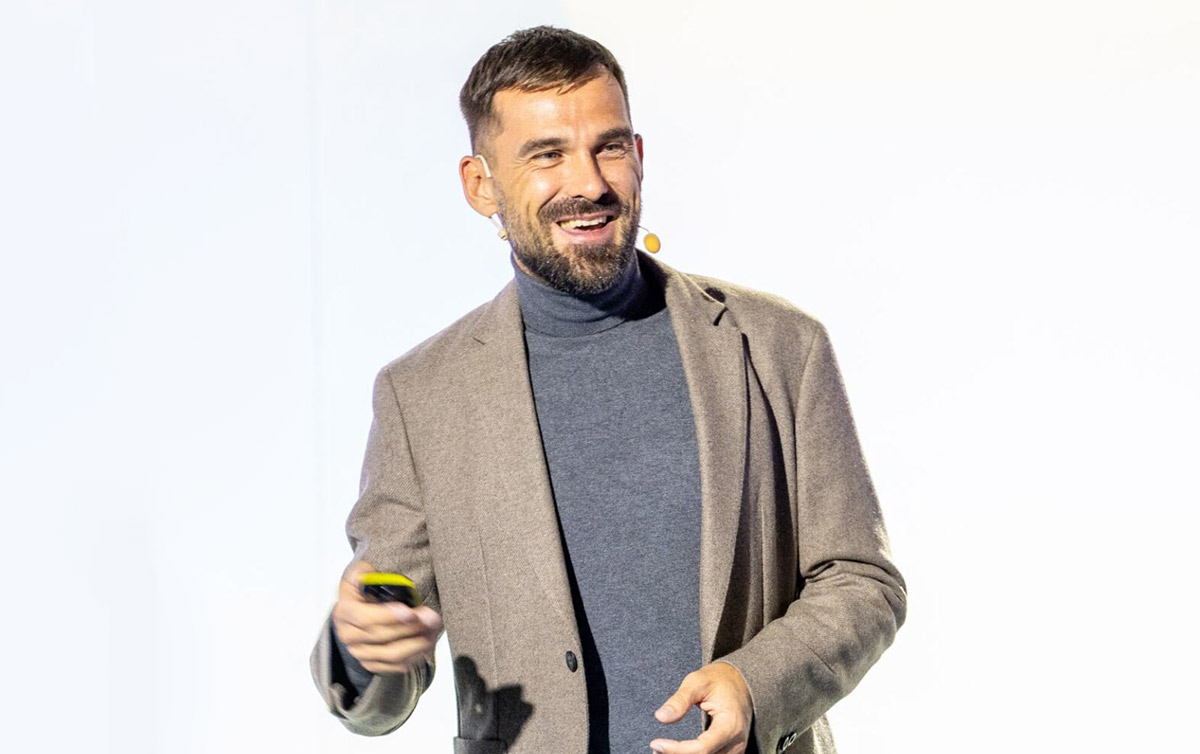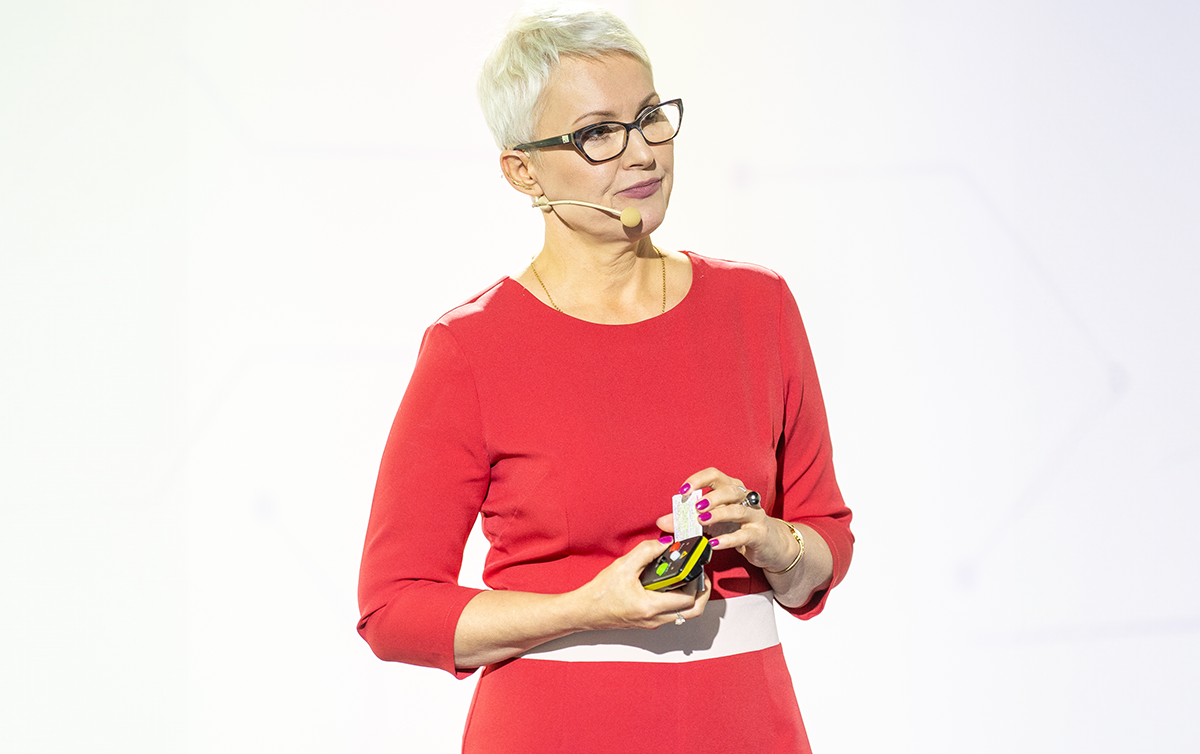Occupational burnout, chronic stress and mental health problems are among the biggest challenges in today’s job market. An increasingly fast pace of life, problems with keeping the work-life balance, a volatile economy, an armed conflict just across the border – all of these contribute to the poor well-being of workers on a daily basis, and the number of people struggling with such work-life issues grows by the day.
Why is it worth taking care of your team’s mental health and how to do it?
The consequences of ignoring this sphere and pushing it down the list of priorities can be really serious, as untreated feelings of exhaustion, occupational burnout and chronic stress can lead to the development of depression, among other things, and in the long run can also take a toll on an employee’s physical health.
According to the survey “Tired, Indifferent and Uncommitted. The Post-Pandemic Needs of Employees”, conducted by Benefit Systems in 2022, as many as one in three employees feel tired and fatigued at work at least a few times a week, and one in ten feel fatigued every day. That’s not all, however, since as many as one in five working Poles feel fatigue before they even start their workday, a textbook symptom of the feeling of occupational burnout.
The issue of mental health crisis is a trend not only in Poland. Research findings from a report by Willis Towers Watson show that as many as 73 percent of employers worldwide report that stress, occupational burnout and employees’ mental health issues are their biggest challenges with respect to human capital management.
As you can see, the situation is already really serious, and the World Health Organisation is warning that it is going to get worse. In response to this threat, the European Parliament is preparing further resolutions with guidance on how to support the mental health of employees. Its main guidelines include making working hours more flexible and regulating remote work. What else can be done at the organisational level to avoid contributing to the growth of the disturbing phenomenon of the mental health crisis? See our tips on how to take care of the mental health of your team.
Caring for the work environment
In order to support the well-being of employees in our organisation, we should first start by looking at what makes them feel burnt out and tired. Does our work culture contribute to the well-being of our employees? Do they feel understood, confident and appreciated? Do they know that we value their work?
On the surface it may seem trivial, but it is from indifference and a sense of meaninglessness that occupational burnout begins to sprout, and a negative work atmosphere and lack of rest are the factors that directly exacerbate the mental health crisis. Therefore, it is important to analyse the work environment in which our employees function and modify it accordingly so that it is friendly to them and that they are eager to return to it.
Improving the so-called “digital employee experience” is also one of the factors worth looking at. This is currently one of the biggest challenges for HR departments and those responsible for employee teams. According to a 2022 Harvard Business Review study, employees could be losing as much as four hours a week switching between applications. Such situations breed frustration and reduce productivity. The solution is to provide them with a single, easy-to-use MyBenefit platform, the modules of which you can customise to suit your company’s needs.
Recognition and motivation
Is your organisation’s incentive system doing its job? It is worth taking a closer look at its effectiveness and, if necessary, reach for new solutions that are emerging on the market. In such case, benefits packages can prove to be a helpful tool. They are not only proven motivators, but also allow us to express appreciation to employees and help build loyalty and strengthen ties in the workplace, e.g. through engaging gamification or motivational “kudos”, which can be used by users of the MyBenefit Cafeteria.
When identifying the needs of employees, it is worth seeking professional help. This can be provided by well-being concierge. This new Benefit Systems service will facilitate both the development and implementation of an effective well-being strategy for your company. The effects of the introduced solutions will be measurable through another Benefit Systems proprietary tool – well-being score.
Passive and active rest
Benefits such as the MultiSport card and access to online exercise (e.g. through the MultiLife Yes2Move service), enable employees to take active rest, which is very important for the regeneration of not only the body but also the mind. In addition, they stimulate people to take up health-enhancing activities, which is especially important since often low mood can push toward behaviours that will only exacerbate a difficult condition.
There should be a balance between work and rest, and the balance in the ways we rest is no different. Passive relaxation is important, especially if we have extremely little free time. However, active rest is equally important, as it is what helps to regenerate our minds, and in the long run also contributes to improved concentration and increased creativity.
In addition, doing even a few minutes of physical exercise a day improves circulation and positively affects the quality of sleep, which is an indispensable part of mental and physical health. Today one of common pastimes is to spend time in front of a computer, TV or phone screen. Meanwhile, new technologies can also be used to improve one’s well-being, such as by using phone apps designed to reduce the user’s perceived stress through guided meditation, relaxation or calming music (such as Focusly, available as part of MultiLife). In this way, you can make passive rest even more supportive.
A wide range of leisure activities is provided to us by the MyBenefit Cafeteria. It includes vouchers for books or games (e.g. at Empik stores) or tickets for zoos, amusement parks (e.g. Energylandia and Suntago) or thermal pools. You can also redeem points for stays in hotels and other resorts (such as Sun&Snow or AlohaCamp apartments) in the most beautiful corners of Poland and abroad. This benefit means that everyone can relax in the way they like best and thus get the most out of their holiday.
Communication and support
It’s worthwhile to open up to conversations about mental health, although this may raise objections from many – after all, human attitudes based on drawing a clear line between private and professional lives are well-known and common. It’s high time to change this outdated attitude, because if a person is struggling with, for example, depression, it will not only accompany them at work, but eventually may even prevent them from doing their job. The problem of a deepening mental crisis will not go away, unless we open ourselves to its existence. On the contrary, turning away from it can only aggravate it.
Our employees should realise that they can communicate their problems and struggles, and know that they will be heard and understood. A health benefits package, complete with access to psychological or psychiatric care, may also be an additional element. Such individual e-consultations are enabled by the MultiLife Extra package, and the psychologists with whom an appointment can be made include those specialising in coaching, emotional crisis support and parenting topics.
Communicating honestly and openly about mental well-being and destigmatising mental disorders are very important because they encourage employees to take care of their mental health and not push it to the back of their minds.
Drawing attention to the problem and educating
It is also important to make your employees aware of the risks that mental problems can pose as well as adequately prepare and alert them to the early signs of occupational burnout, depression or mental disorders. With proper education of employees, we have a chance to reduce the likelihood of such situations, and as we all know – it is much easier to prevent than to cure. If we have the opportunity, it’s worth investing in professional training or workshops on mental health – it is definitely an investment in the future of not only employees, but also the company’s welfare.
This type of workshop can be part of a larger well-being programme, for the preparation and implementation of which it is best to use the help of experts. Are you interested in the webinar “Understanding and Accepting Emotions”, or maybe more in the “ANTI-STRESS” workshop? In this respect, Benefit Systems offers a wide range of ready-made packages for office and manual workers, as well as the possibility of customising them to suit your company’s individual needs.
Why invest in employees’ mental health?
In addition to the fact that it is simply ethically desirable to co-create a healthy and safe working atmosphere, it also has an economic rationale. What else can we gain apart from employee satisfaction and support? The list of benefits is extensive:
Lower employee turnover
An employee who feels appreciated and cared for is a loyal employee. It may seem like a trivial matter, but reliable and permanent staff is a rarity in these uncertain times, as employee turnover generally increases with economic and health concerns. A 2021 study by Forrester Research indicates that nearly 80 percent of employees consider the availability of mental health-related support a key element of the workplace and take this into account when deciding whether to stay or change jobs.
Quality of work
An adequate amount of rest, both passive and active, contributes to improved concentration and enhanced creativity. According to the American Psychological Association, people who have free access to a mental health professional are productive workers, maintain good relationships with supervisors and colleagues, and provide better customer service.
Cost reduction
In addition to better quality of work, which translates into profit for the company, we can additionally expect cost return due to fewer sickness absences. According to the WHO, by investing in the mental health of employees, we can expect as much as four times the cost return as measured by employee productivity and fewer sickness absences. Moreover, chronic stress, depression and occupational burnout can lead to physical illnesses, including heart disease and immune system diseases. Investing in preventive care with respect to employees’ mental health can therefore reduce the incidence of serious illnesses and, in turn, the cost of related insurance.
To illustrate the ever-growing problem with the mental health of societies, a Gallup Institute survey can be cited. The institute’s representatives checked people’s sense of unhappiness in an international survey (The Global Rise of Unhappiness), which found that the percentage of people describing themselves as unhappy in the society has been rising over the years. In 2006, 24 percent of those surveyed felt unhappy; in 2015, that number rose to 26 percent, to reach 33 percent in 2021.
It is worth taking into account the fact that a person in whom some kind of psychological discomfort is growing, as a result of which they forgo their usual activities (such as time spent on hobbies or meeting friends), generally tries to maintain employment for as long as they can. Therefore, the work environment should, as much as possible, provide psychoeducation and contribute to preventing mental health issues. Everyone will benefit from such measures.
References:
Badanie Harvard Business Review, How Much Time and Energy Do We Waste Toggling Between Applications?, Sierpień 2022
Raport Willis Towers Watson „2021 Benefit Trends Survey”, 2021
Keus van de Poll M, Nybergh L, Lornudd C, et al "Preventing sickness absence among employees with common mental disorders or stress-related symptoms at work: a cluster randomised controlled trial of a problem-solving-based intervention conducted by the Occupational Health Services", Occupational and Environmental Medicine, 2020
Harder, H. G., Wagner, S. L., & Rash, J. A. "Mental illness in the workplace: Psychological disability management", Gower Publishing Co., 2014
"Making the Investment Case for Mental Health : A WHO/UNDP Methodological Guidance Note", 2019
Debra Lerner, Mercedes Lyson, Eileen Sandberg, William H. Rogers, "The High Cost of Mental Health Disorders: Facts For Employers", 2018
Jon Clifton Blind Spot: The Global Rise of Unhappiness and How Leaders Missed It Hardcover, 2022
Raport Benefit Systems „Zmęczeni, obojętni, niezaangażowani. Postpandemiczne potrzeby pracowników”, 2022






















